How To Become A B2B SaaS Copywriter – And How Much Can You Earn?
Wondering how to become a B2B SaaS copywriter? Whether you’re switching from another writing niche, or just starting your journey as a content creator or copywriter, you probably have a ton of questions.
In this article, you’ll get helpful advice and strategies from freelance B2B SaaS copywriters who share:
- How they started out
- What it takes to be successful in this niche
- What the biggest challenges are in this niche
- How they’ve grown their businesses since they started
- How much you can earn as a beginner, and as an experienced SaaS copywriter
- Their favourite resources, courses, communities, and books to hone your skills as a SaaS copywriter
There are SaaS companies in literally every industry that you can think of – and they’re all solving real problems for real people.
So whether you’re interested in writing about pets, travel, finance, productivity, marketing, SEO, or fashion – there’s a SaaS out there waiting for your expert help as a copywriter, content creator, consultant, or strategist.
If you’ve been reading up about copywriting for the B2B SaaS niche, you might have heard lots of people saying things like:
- The niche is waaaaay too saturated for new copywriters now
- If I niche into SaaS it’s going to be boring 🙄
- SaaS startups can’t afford what I want to charge
- I’ve got no relevant samples, so I won’t be able to get good clients in this new niche
Having stalked observed hundreds of these comments over the last couple of years, I decided it was time to debunk the theories of the B2B SaaS industry being some lofty unicorn of a niche that’s impossible to break into.
This couldn’t be further from the truth. There’s plenty of work here for everyone. The SaaS industry is absolutely huge, and it’s showing no signs of slowing down. And there are projects to suit wherever you’re at – whether you’re a brand new writer, or a well-seasoned copywriting maestro.

What is a B2B SaaS copywriter? And what do they do?
A SaaS copywriter is somebody who helps software companies sell their products on a subscription basis to other businesses (not directly to consumers).
SaaS is short for “software as a service” – and if you use common cloud software apps like Google, Slack, Canva, Uber, or Spotify, you’re already a SaaS subscriber.
As a B2B SaaS copywriter, you’ll help fast-growing SaaS companies improve the messaging on their websites, emails, ads, social media copy, blogs, and marketing campaigns to get more sales and sign-ups for their free trials and paid plans.
If you love research, SaaS copywriting involves a ton of it. You’ll be surveying and interviewing existing and past customers, trawling through sites like Reddit and G2 Crowd for customer reviews and honest opinions of software, and talking to the sales and marketing team members of your client’s company.
Research makes up the bulk of SaaS copywriting, as you’ll need to have a good understanding of why people need and use certain products, and what the features and capabilities are of each product.
How does the software product transform a customer’s life for the better? Why did they choose your client’s product over the many competing products on the market? What are the benefits and results people find in using the product? You’ll need to dig deep for these answers, and use what you find to start writing your copy.
Your work isn’t limited to copywriting either. Many SaaS copywriters develop valuable skills in branding, content strategy, product marketing, conversion optimization, and growth consulting – which means they can offer more value to their clients and command higher rates.
B2B SaaS copywriters typically specialize in a few core services, such as:
- Sales pages
- Email funnels
- Landing pages
- Blog posts/articles
- Long form content
- Social media posts
- White papers
- Case studies
- Advertisements (print and digital)
- Video scripts
- In-app (UX) copy
Despite the name, SaaS copywriters are more than just writers. They’re conversion experts, salespeople, negotiators, behavioral psychologists, strategists, and marketers all rolled into one. And if you’re a freelancer, these skills will be the key to growing a successful business.
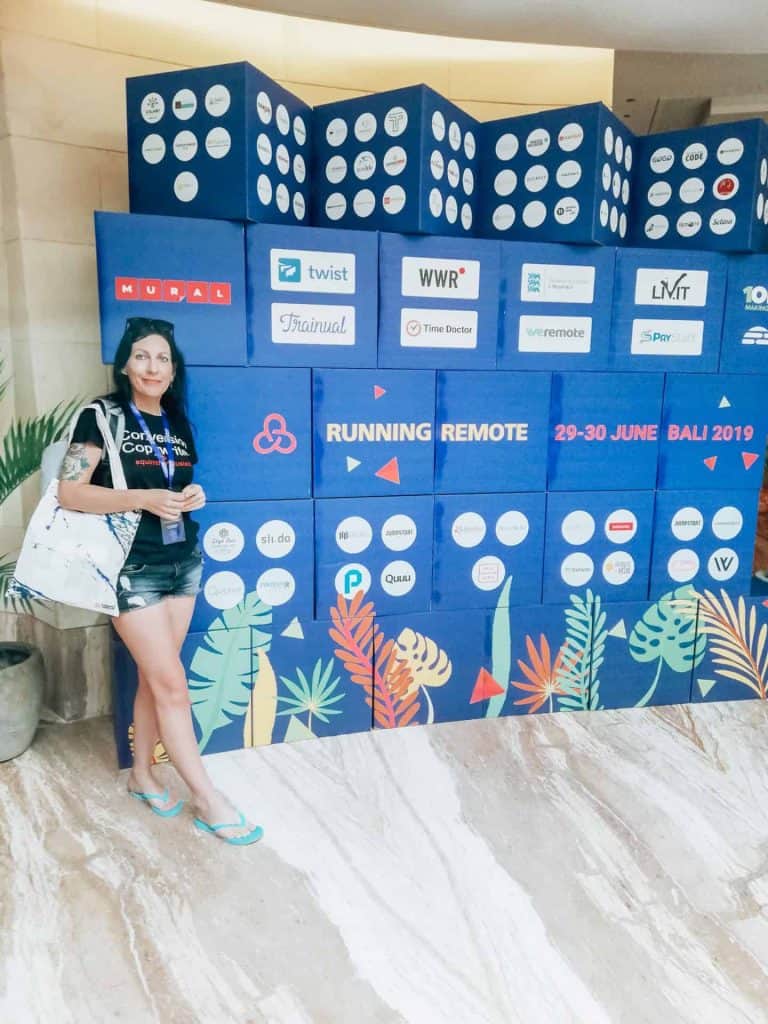
11 B2B SaaS copywriters you need to follow in 2022
Although I’ve been a SaaS copywriter for 5 years, I don’t operate in a vacuum. I’m constantly learning from other people in my network.
My way of growing a business and offering copywriting services isn’t the only way – so I spoke with some of the other excellent copywriters I know who have niched down into SaaS to find out:
- How they started
- Why they chose to focus on writing for the SaaS industry
- What type of services they offer to clients
- What their businesses look like now
- How they plan to grow and evolve their businesses
Annie Bacher
I met Annie through the Copywriter Club a couple of years ago. She currently lives and works from Buenos Aires and loves to do insane things like running marathons for fun.
Before she niched down into SaaS, she worked for an agency where she wrote for global brand giants like Coca-Cola, United Airlines, T-Mobile, and Akamai.

Like many new copywriters (including me!), Annie didn’t really know what copywriting was until she started Googling…
“Before getting a job at an agency here in Buenos Aires, I had no idea what copywriting was. I had to Google “what is copywriting?” the night before my interview.
But once I started doing the work, I realized it was perfect for me — I was immediately hooked. I started out writing for the agency’s clients, including United Airlines and Coca Cola. There were five of us on the copywriting team, and whenever we’d get a project for a tech company, I would be the one to take it on. That’s how I got into SaaS — I realized I enjoyed the tech-y projects, and no-one else did! “
What do you think it takes to be a fantastic SaaS copywriter?
I think you need to ask a lot of questions. And be willing to be curious and be wrong a lot. Products in SaaS are constantly growing and changing, and by nature of the subscription-based business model,
SaaS teams are constantly evolving their products. So when you work with a SaaS client on copy, their message and value proposition is often in constant evolution as well.
Do you write for anyone other than SaaS companies?
Yes! I’ve recently been working with a lot of clients who are creative entrepreneurs. They’re often SaaS-adjacent, because they use a lot of software tools to sell their courses or products, but it can be nice to explore different niches.

What types of projects do SaaS companies hire you for?
I specialize in website copy and emails. I love emails especially, because it’s like a one-on-one conversation. There’s a lot of empathy involved in writing emails, and you have to think about it as a human interaction. I like the challenge of really thinking about the person on the other side of the screen and how they’ll receive this email.
Do you have any advice for writers who are thinking of positioning themselves as SaaS copywriters?
Don’t wait for permission to claim a niche. Start calling yourself a SaaS copywriter (or whatever niche you’re into) and then seek out work related to that niche.
I think as copywriters, we spend a lot of time with other copywriters, and it’s easy to feel like you need a ton of experience to say that you focus on a specific niche.
What are your favourite resources that you’d recommend to aspiring SaaS copwriters?
For free resources, the CopyHackers blog is a great place to start. And then I would definitely recommend taking Copy School from CopyHackers to get a solid foundation in SaaS copywriting. There are so many other resources, but that feels like the most comprehensive and thorough.
Finding the Right Message by Jen Havice, and Obviously, Awesome by April Dunford, are two books that aren’t expressly about SaaS copywriting, but they both focus on SaaS research and positioning, and I’ve found them to be invaluable.
To learn more about how Annie runs her copywriting business, you can sign up to her weekly email list here: anniebacher.com/emails – or click the button below to check out her website.
Dayana Mayfield
Dayana is a well-known B2B SaaS copywriter who specializes in websites, landing pages, and content marketing campaigns for her clients.
I asked her how she started out as a copywriter, and how she made the decision to focus on the B2B SaaS niche
I started my copywriting business in 2015 with no experience. I was previously a quality assurance tester for a software development company–meaning I played around with software, found bugs, and logged them for the developers to fix. I always loved writing, and wanted to get paid to be a writer.
What do you think it takes for copywriters to succeed in this niche?
You need to understand the way that SaaS products are sold. Some are sold purely using the product-led method, meaning that users sign up for a free plan or free trial and then enter their credit card information after they’ve tried the product and found it valuable.
Other SaaS platforms are sold primarily by sales teams doing demos and following up with accounts. And some SaaS products are sold using both methods: product-led growth for small businesses and sales actions for enterprise companies.
When you truly understand these methods and why SaaS companies use them, you can be a better copywriter because you’ll have a clear picture of how your writing contributes to customer acquisition.

Why did you decide to niche down and focus specifically on writing copy for B2B SaaS companies, and what do you love most about this type of writing?
Although I started my business in the tech niche and called myself a “tech copywriter” on my website, I still tested other niches because I needed to make money and was taking whatever came.
I tried out beauty, construction, coaching, and lots of other niches, but I kept returning to SaaS because the people are smart, creative, and humble. Plus, there’s great money in SaaS! I also love that with SaaS, I can sell things people actually need. My conscience could never allow me to shill crap.
Can you share what your first client project was as a SaaS copywriter?
My first client was actually a software development agency that built, among other things, the registered sex offender database for the state of California.
Initially, I worked with more software development agencies but then switched to software companies. I was getting a lot of SaaS clients on Upwork and enjoyed writing for them.
Do you work in any other niches to give your brain a break from constant software jargon?
Not usually. I did write a website for an airplant subscription service, but that was only because it was a side project of one of my SaaS clients. I don’t go searching for projects outside of my niche because when I’m writing out of niche I feel like a fish out of water–like I can’t be certain what will work and what won’t.
Do you specialize in any specific type projects for your clients? And why did you choose these?
I write websites, landing pages, and content marketing campaigns.
Unlike many SaaS copywriters, I purposefully write both copy and content. For example, I might write a 3000-word SEO blog post, 4000-word ebook, the landing page for the ebook, the email delivery and nurture sequence leading from the ebook to a free trial.
My clients love that I offer complete content campaigns that they can give to the designers and marketing ops people on their team with no need to pull together 4 or 5 different copywriters.
How much can you expect to earn in the B2B SaaS niche?
B2B SaaS copywriters can get to six figures in revenue pretty quickly, and scale from there. You can pay yourself between $100,000 and $200,000 after expenses just doing copywriting, without courses or scalable income streams.
What’s your best piece of advice for people trying to break into this niche – either from another niche, or starting from scratch as a new writer?
Work with newbie startups to get your feet wet and then go up market and target more established SaaS companies with cold email and LinkedIn. On LinkedIn, you can connect with marketing managers and post each week to capture their attention.
I recommend working with funded or profitable SaaS companies because you won’t have to worry about your invoices not getting paid or dealing with stressed-out SaaS founders with no money.
As soon as you’ve got experience, get picky. Don’t work with SaaS products that suck. Check out the product for yourself and make sure it’s something the market needs. You’ll get to work with smarter, more successful teams and learn more than if you keep playing in the struggling-SaaS-founder-pond.
What are your favourite resources online (free or paid) that you would recommend for new writers to learn about becoming a SaaS copywriter?
Doing customer research not only sets you apart during the sales process, but it also makes your writing better. You can learn a lot about customer research at Forget The Funnel.
Dayana has some incredibly helpful resources if you’re looking to become a successful B2B SaaS freelancer:
Learn how to send cold emails like a pro, get higher paying clients, and ensure you always have a ton of work lined up with the Outreach Wins system:
Chima Mmeje
If you’re curious about becoming a content creator or copywriter for SaaS, and you’re not following Chima on LinkedIn, do this now.
Her posts are refreshingly down-to-earth and packed with insights, and she shares her fascinating journey from writing for a content mill for barely any mone,y to niching down into SaaS in 2020, getting to $10,000 a month, and getting featured on top industry websites including HubSpot, Moz, Semrush, and the Content Marketing Institute. And she’s achieved all of this from her home town in Nigeria.
How did you decide to move from being a generalist writer to focusing solely on SaaS?
I spoke to a copywriter who was a SaaS specialist and asked him why he worked in SaaS – and he told me that’s where all the money is!
Decision made, I decided to specialize in SaaS and tech because these companies have money to spend on content. I am motivated by money so I’ll go where the money is.
What are the qualities you’ll need as a writer to succeed in the SaaS niche?
You’ll need a good understanding of the product you’re writing about, what it does, and how it makes life easier in relation to a specific problem. You’ll be using all that empathy to write content that shows the value of the product to the reader and end user of the product.
How did you go about finding your first SaaS copywriting project?
My first client was a referral by the copywriter who told me that all the money was in SaaS, haha.
The client was Engage Bay and the referrer was fellow B2B SaaS copywriter, Federico Jorge.
Do you work in any other niches to give your brain a break from constant software jargon?
Haha! That’s the thing – there are so many different types of SaaS, that it’s impossible to get tired.
I have clients in HR SaaS, SEO SaaS, Research SaaS and more. However, I also diversify by working with marketing and SEO agencies because this is the stuff that comes easy to me.
What do you love most about writing for this particular niche?
Understanding what makes a product useful, and finding a way to communicate that unique selling proposition to the audience with each piece of content. So many SaaS companies spring up each day, it’s an exciting time to be working in this industry.

Are there any specific challenges you’ve had to overcome being based in Nigeria, when so many SaaS clients are based in the USA or Europe?
Oooof! So many…
In the early days, I had to prove that I could speak and write English. Then, I had to prove that I was just as good as a US based freelancer.
Now, it’s the constant bottlenecks around getting money to Nigeria when working with clients that require a credit card payment system.
I navigated through problem one and two by building authority on LinkedIn as a knowledgeable SEO writer who wasn’t just talking through my ass.
Getting referrals from some of the big names also helped mitigate the problem of early work which meant that I had something to show when connecting with a potential client for the first time.
Now, I don’t have those troubles anymore.
Clients don’t care if I live on the moon or Nigeria. They come to me knowing I’m the best at what I do and they want that expertise for their SaaS company.
Do you specialize in any specific type of project – and why did you choose this?
Yes, long-form blog content – the pay is way better. It’s feasible to make $10k a month when you charge between $1500-$3000 for a piece of content.
Who has made the biggest impact in your SaaS copywriting career so far?
Dayana Mayfield without a doubt. I found her when I was drowning, and she lifted me up. She gave me clarity about growing my brand, charging for my work, and even finding work. Dayana didn’t just mentor me, she sent work my way.
I think this is the two-pronged approach of great mentoring. Teach me how to catch a fish and give me some fish to eat in the early days so I don’t starve while applying what you’ve taught me.
When I was launching my course on building topic clusters, I turned to her again and she shared everything she knows about selling online courses. The advice she gave me was beneficial to a successful launch.
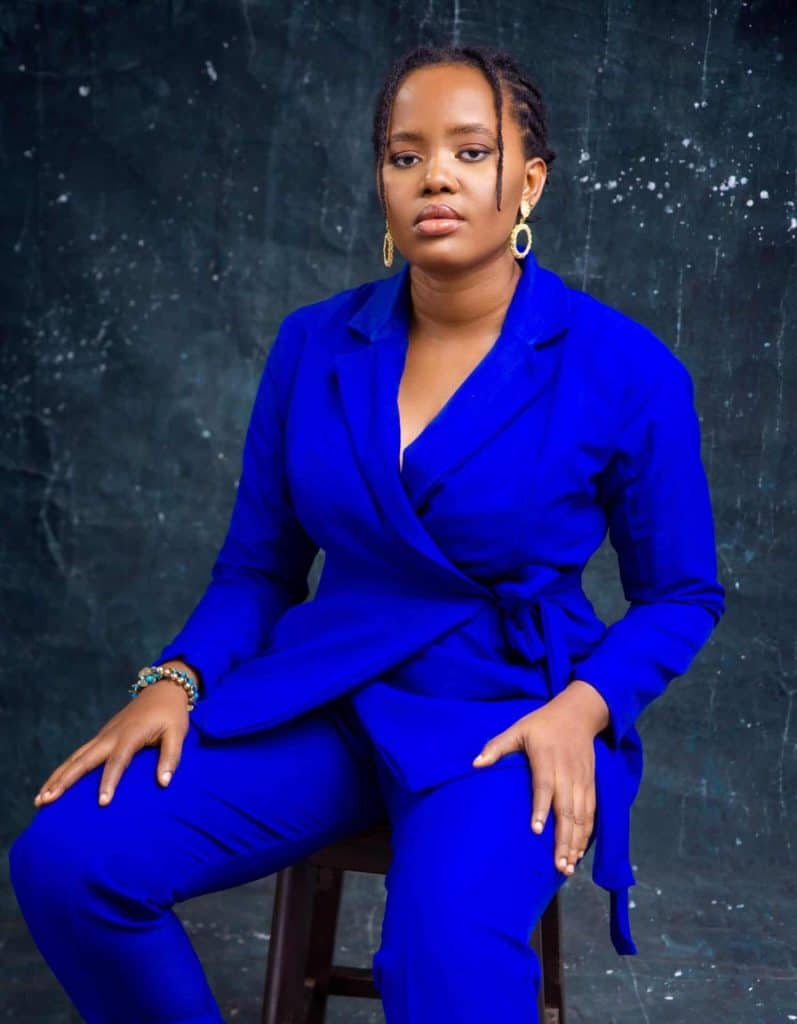
What’s your best advice for people trying to break into this niche – either from another niche, or starting from scratch as a new writer? I’d especially love your perspective as a writer that isn’t based in the USA/Europe SaaS hub
People think there’s a secret sauce to making the jump to SaaS, but there isn’t!
Literally, all I did was:
- Change my bio on LinkedIn, Facebook and Twitter to reflect that I now write for SaaS companies. I wrote some tech samples on Hackernoon and I would send those to SaaS content marketers and SEOs who were looking to hire content writers.
- Get samples in SaaS.
- Publish on blogs where SaaS folks spend time. Those guest posts show you’ve got the juice. I have a piece on Hackernoon that has brought in over $10k in work. It’s what I sent when they asked to see my work.
- Establish authority, fast
Authority doesn’t have borders. People are attracted to smart, confident folks who know what they’re talking about and share practical tips they can apply immediately. I share a ton of content on Facebook, LinkedIn and Twitter. This content has set me up as an authority in SaaS content and strategy.
Connect with the people you want to work with. I mostly connect with Heads of content, SEO and marketing because these are the people I want to impress.
Share advice people can implement immediately. Advice so good that people think “Well shit. If she’s giving this juicy stuff away for free, I wonder what she’ll deliver when we pay her”
What are your favourite resources online (free or paid) that you would recommend for new writers to learn about becoming a SaaS copywriter, or the SaaS industry in general?
I was lucky to receive training in-house. This gave me a soft landing when I decided to go freelance. But what really helped was reading all the good stuff on industry blogs like CMI, HubSpot, Enchanting Marketing etc.
How do these people write? This is the style that Google favors for ranking and apparently, it converts really well. I spent a lot of time reading content marketing blogs to learn their style of writing from introduction to identifying obvious semantic words and how they structured their subheadings.
I also took note of how they integrated their value proposition in the copy as this is the central tenet of writing long-form content for SaaS – knowing when to educate, when to sell and how to sell without selling.
Definitely checkout Kissmetrics blog, Hubspot, Grow and Convert, and Coschedule. These folks have mastered the art of writing long-form copy that performs.
You can follow Chima on Twitter @chimammeje and on LinkedIn. If you want to learn more about how she helps her SaaS clients – click the button below to check out the Zenith Copy website.
Andrew Yedlin
I met Andrew in New York at the Copywriter Club Live event a few years ago – and we’ve both learned much of what we know from our incredible mentor Joanna Wiebe of Copyhackers, who has a strong focus on the SaaS industry in her teaching. Andrew has been copywriting for 5 years now, and began as a generalist before he decided to focus on SaaS.
I asked Andrew what he thinks is essential if you want to become a successful SaaS copywriter
Meeting people who open doors for you, and positioning yourself as someone who doesn’t just write, but as someone who delivers business outcomes.

I often hear that the SaaS niche is getting too saturated for new writers – do you think that’s the case?
When I was starting out, I told one of my mentors that I thought SaaS was too crowded with copywriters. She just shook her head and said, “No, it’s not. There’s still room.”
She was right. Now I have more leads than I can handle, and I’m charging more than I thought possible when I started out.
Why did you decide to make the switch to SaaS copywriting? And has it changed your business in any way?
At some point, I went all in on SaaS because I wanted to strengthen my positioning. I don’t know if it helped me attract or close clients, but it helped simplify the way I think about my business.
What was your first SaaS project?
I found a German SaaS on Upwork that paid me $20/hr to write web and email copy for them.
It was actually the perfect starter project because they were not native English speakers, so even if I wasn’t good at copywriting yet, I could at least improve their performance by fixing their grammar and making the copy sound more natural.
What do you love most about writing for the SaaS industry?
I love that these products are actually needed. I never wanted to work in a niche where I felt like I was trying to sell people things they don’t need.
What’s the biggest challenge you have with your work?
It’s easier to write copy that your client likes than it is to write copy that performs well. Good copy often gets pushback from clients because it doesn’t match their expectations. And often, those expectations are based on other copy they see in SaaS – which is terrible.
So I guess the hardest part is convincing my clients to try things that differ from what they expected.
What type of copywriting projects do you specialize in?
Websites, landing pages, and ads. Mostly websites and landing pages.
I like that websites and landing pages let you tell a more-or-less complete story about a product. I do ads just because they often go along with landing pages, and they need to match.
What’s the earning potential for a B2B SaaS copywriter?
One person working more or less alone? I could see a high-performer earning $250k / year. But getting to $10k / month — which is a common goal I see — is very doable.
And you don’t have to kill yourself to get there. You just need to be consistent and patient.
Running an agency? There’s really no limit. There’s so much demand.
And what if you’re a newbie B2B SaaS copywriter – should you keep your earning potential realistic here?
I wouldn’t put too many limits on your expectations.
When I started, I would pick up little $1-3k projects here and there. It might have averaged out to maybe $2-3k in the beginning. But there’s no reason you have to stay there very long.
If you play your cards right, you can ramp up from $2k / month to $10k / month very quickly. It took me a long time, but it probably didn’t have to.
What’s your best advice for people trying to break into this niche – either from another niche, or starting out as a completely new freelancer writer?
Find role models. People who have what you want, who do what you want to do.
- Follow them on social
- Read everything they post
- Read the books/articles they recommend
- Leave positive comments on their posts
- Re-share their stuff
- Build a connection with them.
Eventually, they will probably send you referrals and open new doors for you.
What are your favourite resources online (free or paid) that you would recommend for new writers to learn about becoming a SaaS copywriter?
Copyhackers, duh!
And also good is the book Obviously Awesome by April Dunford
You can keep in touch with Andrew on LinkedIn – or click the button below to check out his website
Jon Evans
I met Jon at the same time I met Andrew. He’s a London-born, Xbox playing, guitar-slinging copywriter – equal parts geek and rockstar. He’s been writing for a living since 2011.
Jon is also living the digital nomad lifestyle, and he’s been in Barcelona for the last couple of years (so more of a digital ‘slo-mad’).
I asked Jon how he’s found living and working from Barcelona so far
I wouldn’t be able to be here if I wasn’t a freelancer, and working with SaaS is a big part of that.
It’s a good niche with lots of opportunities for work, plus the businesses are used to working with people in different time zones. They don’t care if you’re halfway across the world!
Do you have any tips for being a sought-after copywriting for B2B SaaS companies?
You need to be able to go further than just writing some nice words about software. That means understanding the bigger picture of your prospect’s journey, and where your copy fits into it. SaaS is also competitive, so you’ll often need to have some idea how you can make your client stand out from the crowd.
I think to be any kind of copywriter, you also have to be able to look at things from other peoples’ perspectives. Being able to look at your website or email through the eyes of someone who has never seen it before is key.

Did you start out writing for SaaS companies?
I’ve been a copywriter for about 10 years now. I originally started out trying to be a ‘generalist’, so I didn’t have any particular niche.
But I ended up doing a lot of work in tech, both in B2B and B2C. For whatever reason, it was a natural fit, and it got me doing some SaaS projects.
I had done a lot of branding-related work previously, and work on broad marketing campaigns where it’s hard to see what impact the copy made. But I always wanted to work on copy projects where my work would have a direct, measurable impact on the client’s results. So that lead me to focus more on ‘conversion copywriting’, which is generally what SaaS copywriting is.
No niche is perfect, and in some senses SaaS is less gratifying for copywriters than others are, because there’s less scope for creativity.
However, it was still a great fit for certain aspects of my skillset. I can get my head around complex products quickly. I’m good at finding the punchiest, most concise ways to say things. I’m great at interviewing people. And I can take an engineer’s tech-talk and turn it into something human-friendly, which is vital for SaaS!
What was your first client project?
Many moons ago, I did a web copy project for a SaaS company that makes software for entrepreneurs – they’re still around but I won’t say who!
I still have that copy on file, and I cringe a little when I see it now…
Do you work in any other niches to give your brain a break from constant SaaS-speak?
Yes! Probably 70% of my work is SaaS, but I also write for different kinds of startups, service providers, course providers and tech companies quite often.
I think it’s important for any copywriter to have some variety. You need to keep things interesting for yourself, and keep the cobwebs off the lesser-used aspects of your skillset..
What do you love most about writing for SaaS?
Working with smart people, and people that ‘get’ marketing. While I can’t say that every SaaS client is a dream to work with, in general they respect the work that copywriters do.
They generally give me the space to do what I need to do, which means I can focus on my process and get the client some good results.
Some SaaS startups are up for experimenting and trying new things out, which can also be interesting.
Do you specialize in any specific type of projects?
Website copy, for sure. I’ve always done a lot of web copywriting projects, and I’m pretty experienced with them – I think that comes through in my own marketing, and in the referrals I get from past clients.
Emails probably come second. But in my experience, a lot of SaaS companies don’t realise the importance of email marketing until they have grown to a certain size.
How much can a B2B SaaS copywriter expect to earn?
At the top end, thousands of dollars a day. But I expect most freelancers aren’t earning that.
It’s worth nothing that people talk about SaaS like it’s an industry, but it’s really a delivery method. There are niches within B2B SaaS, and some will undoubtedly pay more than others.
If you’re primarily writing content, you might have to start out really low – some writers are making $20 an article.
That’s why I always tell newbies to avoid the content route if they can and instead focus on marketing/conversion copy. I think if you can get a couple of copy projects under your belt, it wouldn’t be too hard to make around $300-500 a day.
What’s your advice for writers trying to break into this niche?
Forming relationships with agencies can be helpful in your early days. In the long run you will probably outgrow them, but there are lots of agencies in SaaS that will give you regular work if you get in with them.
If you’re a brand new copywriter, make friends with other copywriters – we are allies, not competitors!
Most successful copywriters have times when they can’t take any more work on, and they will pass you referrals or sub-contract work out to you.
Follow Jon on LinkedIn or click the button below to visit his website
Douglas Paton
I met Doug through the Copywriter Club, and later on we joined the Copywriter Think Tank mastermind group with a bunch of other awesome writers to do some serious upskilling and grow our businesses.
Doug has been writing professionally for over 20 years, and started copywriting around 10 years ago. Like many copwriters, he began as a generalist, but quickly transitioned into writing for SaaS companies. When he’s not working, you’ll most likely find him fishing out in the wilds of Canada and trying to avoid being eaten by bears.
What do you think it takes to succeed in the world of B2B SaaS as a freelance copywriter?
I think there’s two things you need to succeed. The first is having a solid understanding of the technology you’re going to write about. This doesn’t mean that you have to master the software, but you have to understand what it does and how it works on some level.
The second is you have to understand the customers. They’re going to be different for every client you work with, but if you have a process in place that allows you to get inside their heads and understand their motivations, you’ll be fine.

Why did you decide to focus on SaaS and move away from being a generalist writer?
I’m not totally sure how I wound up focusing on SaaS specifically. I think I was chasing tech companies and ended up working with mostly SaaS clients.
Do you remember your first project in this niche?
Oooo. Good question.
Looking back, I think it was writing an 8,000+ word ebook about flowcharts for a flowchart SaaS.
Do you work in any other niches to give your brain a break from constant tech jargon?
Yup. I need a break from the jargon and acronyms from time to time.
When I’m not writing about tech, I’m writing travel and tourism articles for clients like National Geographic and the US Air Force.
What do you love most about writing for SaaS?
I really love breaking down complex topics and products in ways that make them easy to understand. It’s an extension of what I used to do as a children’s writer where I often explained complex ideas to younger readers in approachable ways.
What’s your writing specialty? What are you known for in the SaaS niche?
Most of the work I do is long form content, like blogs and ebooks, and web copy. I like them because long form writing is what I’ve always done. I studied magazine writing at university, so blog content was a natural next step.
Web copy is great because it’s a different form of storytelling that helps me use a different part of my brain while writing.
Lets talk money. What’s the income potential for SaaS writers?
It’s different for everyone. Some people come blasting out of the gates and do really well their first years, others are more of a slow burn. It took me a few years to start making great money, but as soon as I defined my niche and what I wanted to do within that niche, things started picking up.
I think the sky’s the limit, really. It depends on factors like how clearly defined your process is, how much work you’re looking to take on, and whether or not people enjoy your work (at least enjoy working with you).
What’s your advice for people who want to become a B2B SaaS copywriter?
The best thing you can do is to find others who are at a similar stage in their business and start building your network.
Copywriters (and writers in general) are pretty good at looking out for each other and when your network starts growing what ends up happening is that you start sharing advice and leads with other writers and they start sharing with you.
Business accelerators and masterminds are also great. If you’re just starting out, learning how to run a business can be a huge boost. I didn’t know what I was doing from a business perspective when I first started freelancing, so it took me quite a few years to really build any momentum. Once I got that figured out, things improved.
Accelerators can be exactly what you need in those early years to help manage the mistakes you’re going to make. Plus, they’re a good way to meet other folks who are starting their entrepreneurial journey and network.
You can follow Doug on LinkedIn or check out his website at www.patoncontent.com
Eden Bidani
I met Eden through Joanna Wiebe’s 10X Freelancer Mastermind, and we’re also both Growth Mentor advisors for startups and marketers. If you’re a new or aspiring B2B SaaS copywriter, I totally recommend that you follow her on LinkedIn, as she’s always happy to connect with other writers, and she posts a ton of great content on there.
What qualities do you think writers need to become a sought-after copywriter for SaaS?
You need to be good at balancing emotions (qualitative data) and logic (quantitative data). This is important for copywriting in general, but especially in SaaS, as 99% of companies will talk only about the features, and not enough about the benefits. Or they’ll talk only about the benefits, without actually describing what the product is and how it works.
Giving both sides equal weight helps make the copy super engaging and super persuasive without feeling “salesy.”

Do you feel the SaaS niche is too saturated for new writers to break into?
Absolutely not! In fact, SaaS is specializing into multiple sub-niches, such as by business type (sales-led, product-led), audience (B2B, B2C, SMBs, enterprise), and industry (fintech, proptech, salestech) so there’s probably never been a better time to get into SaaS writing.
How long have you been a copywriter now? Did you start out in SaaS?
I’ve been writing for 6 years (wow how time flies!)
I didn’t start out in SaaS, actually in eCommerce. But along the way I got to take on a few B2B and SaaS projects and just fell in love with it along the way.
Do you remember your first client project in the SaaS niche?
It was a web page for a POS SaaS for SMBs. I still remember my brain reeling from all the information, but at the same time, it was exciting drawing the connections between the product’s (very dry) features and the target audience’s problems (which were richly detailed).
Do you writer for any other industries, or just SaaS?
Yes, I still take on quite a few eCommerce projects from time to time. It’s good to flex those skills every now and then.
And aside from keeping your brain fresh, by dabbling in side projects you can take your learnings from one niche and apply them to the other. Which leads to some really fascinating results. (Case in point, I applied direct-response style copy to a SaaS book description on Amazon a while back – and it’s been performing beautifully ~2 years since it went up).
What do you enjoy most about writing for SaaS clients?
The challenge, really, especially when it comes to enterprise companies. They have so many different ICPs or target markets, each with their own sets of problems and values, which results in so many different ways of selling a product.
You have to keep your focus but at the same time it’s fun jumping between the different audiences and seeing how one (multi-faceted) product solves for them all.
Do you specialize in a specific type of copy?
Namely anything relating to demand generation. So ads (paid social), landing pages, email sequences, and website copy.
How much can B2B SaaS copywriters make per month?
A lot!
It depends how much you want to work and how well you apply your skills – and if you’re freelance or in-house – but many junior to mid-level writers can comfortably make between $2.5-$5K a month (and easily more for senior writers with a track record of results).
As a super newbie copywriter, it’s probably around the $2-$2.5K mark a month. This really depends on what types of deliverables they’re working on though and how much original research is needed.
At any rate, even if someone is a newbie, if they have a good track record of results (especially when it comes to demand gen or performance marketing) it’s easy to charge more than that.
Again, emphasis on the “track record.” I love that newer writers are being told to “charge what they’re worth” (because most new writers are paid a pittance, as I was for the first 2-3 years) but at the same time, it’s unreasonable to expect to make thousands and thousands for a single project when you can’t yet prove your approach to writing works.
Get some results under your belt and then raise your prices. Clients are more than happy to pay well for work that delivers and helps them achieve their marketing objectives. They’re not happy to pay well for work that “sounds nice” but doesn’t get them closer to their goals.
What’s your advice for writers trying to break into this niche?
If you’re trying to break into SaaS from another niche, or are a newer copywriter, I highly recommend trying to work as a subcontractor for another copywriter (or a marketer) who’s already well-established in SaaS.
That can help you get some great experience and let you test your skills in this area while being under the guidance of someone who absolutely knows what they’re doing.
What are your favourite resources online (free or paid) that you would recommend for new writers to learn about becoming a SaaS copywriter?
As always, Copyhackers. They have some amazing free resources, but their paid courses are absolutely worth the investment.
Follow Eden’s regular updates and industry insights on LinkedIn, or check out her website
Chris Collins
I met Chris in Chiang Mai when he was still deciding whether to go full-time as a freelance copywriter. We talked copy stuff and freelancing stuff, and I suggested…or more like insisted…that he should go to the upcoming Copywriter Club live event that was being held in San Diego, to network with other writers and learn some new things. So it was pretty cool when we met up there again! Chris has just celebrated his third year as a copywriter.
How did you decide to focus on SaaS?
I think my path was pretty typical. One of the most common pieces of advice for new copywriters is, “you need to pick a niche!” And I definitely expected that I would be able to develop more specialized skills and be seen as an expert if I chose a niche.
At first, I knew I needed experience, so I was working with any client I could get.
Many of the copywriters I admire have done a lot of work in the SaaS space – people like Joanna Wiebe, Joel Klettke, and Josh Garofalo.
I felt that copy in the SaaS space was generally not as personality-driven as some other niches, so it was a good fit for the way I write. And there is just a ton of opportunity in the SaaS space – so many really cool companies that are looking for help with their messaging.
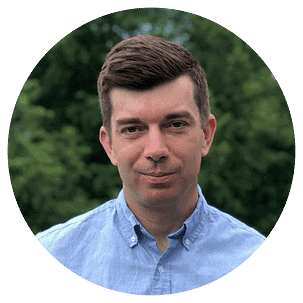
What do you think it takes to stand out in the SaaS niche?
I think the things that have helped me most are being proactive, being flexible, and delivering really good work.
By being proactive, I mean taking a leadership role and driving the project forward. Clients want to feel that they’re in good hands, so it’s really important to show up as a professional, be responsive, and work with them as a strategic partner.
At the same time, flexibility is key. Every startup works differently. Some move much faster than others. Some are very clear on what they need, while others really need you to guide them. Be willing to adapt so your client feels that you naturally fit in with the way they work.
Understanding what it takes to create great copy and constantly improving your craft is also, obviously, essential. If you’re not doing that, you’ll find it hard to get work and pick up referrals.
How did you find your first SaaS client?
Probably my first legit SaaS project was a whitepaper for a client in the retail analytics space. I found them on Upwork. And I would recommend that to anybody who is just starting out and looking for clients.
Lots of companies who are looking for writers go to Upwork to find them, so it’s just a natural place to start. When I was first starting out, I didn’t even have a website, and it was hard to get work.
What I found really helpful was creating some assets for my business like a one-page walkthrough of my writing process that I could always send to every job I applied for – it helped me to come off as a pro and start getting more work.
Do you write for any other niches to give yourself some variety?
Absolutely. When I was starting out, I also went through the feast or famine cycle that many people go through. But your job as a freelance copywriter is to make money, so I quickly learned not to turn away work because I “only do SaaS.”
When I work in other niches, it’s usually in something SaaS-adjacent like B2B or ecommerce. Right now I’m actually writing for a fitness client though, and it’s been a ton of fun.
Writing across different niches also has helped me to learn more about what stellar copy looks like, so I’d definitely recommend it even if SaaS is your primary niche.
What do you find is your biggest challenge as a SaaS copywriter?
I think the biggest source of friction that I experience is that not every project is inherently interesting. If you’re working with a client in a very niche area like payment tech, you’ll need to wrap your head around a lot of arcane details and industry jargon pretty fast.
Oddly, though, I’ve actually come to enjoy these types of projects. It’s easy to think “this has nothing to do with me, when am I ever going to need to know all this?”
But the fact is that you may find yourself talking to another client in the same niche six months down the road – and you’ll really set yourself apart by already knowing their space. I’ve learned to think of every project as a learning opportunity and that definitely helps to overcome some of that resistance.
What’s your #1 tip for aspiring B2B SaaS copywriters?
Make friends. Copywriters are just generally great people and it’s always fun to make new friends. For your personal growth as a copywriter, building a strong network of connections is one of the best things you can do for all the reasons you would expect:
- You’ll pick up so many cool new ideas to try
- You’ll get support when you’re going through tough times
- Your experience as a copywriter will generally be more fun
Here’s the thing, though – making friends can also be a terrific driver for your business. In my first couple of years, getting referrals from other copywriters was probably the biggest driver of my business growth.
I wouldn’t go into any relationship with the mindset that you’re going to get something out of it, of course. Just naturally build relationships with people you want to stay connected with, and over time you’ll start to see more business opportunities emerge as well.
You can connect with Chris on Twitter at @CCollinsDC or check out his website
Sam Grover
Sam is a fellow New Zealander, and is the only other Kiwi B2B SaaS copywriter that I know of. And being as I’m not living there right now – he may be the only one! Make sure to follow him on Twitter for his highly anticipated lawn care updates.
What was the biggest hurdle you had to overcome as a new SaaS copywriter?
I was lucky enough to get a regular job at a SaaS company (Xero) early in my career – so I learned all those nuts-and-bolts things just by osmosis.
Things like the terminology SaaS companies use (MRR, ARR, blah blah blah), and the big strategic brush strokes in marketing (acquisition-conversion-retention).
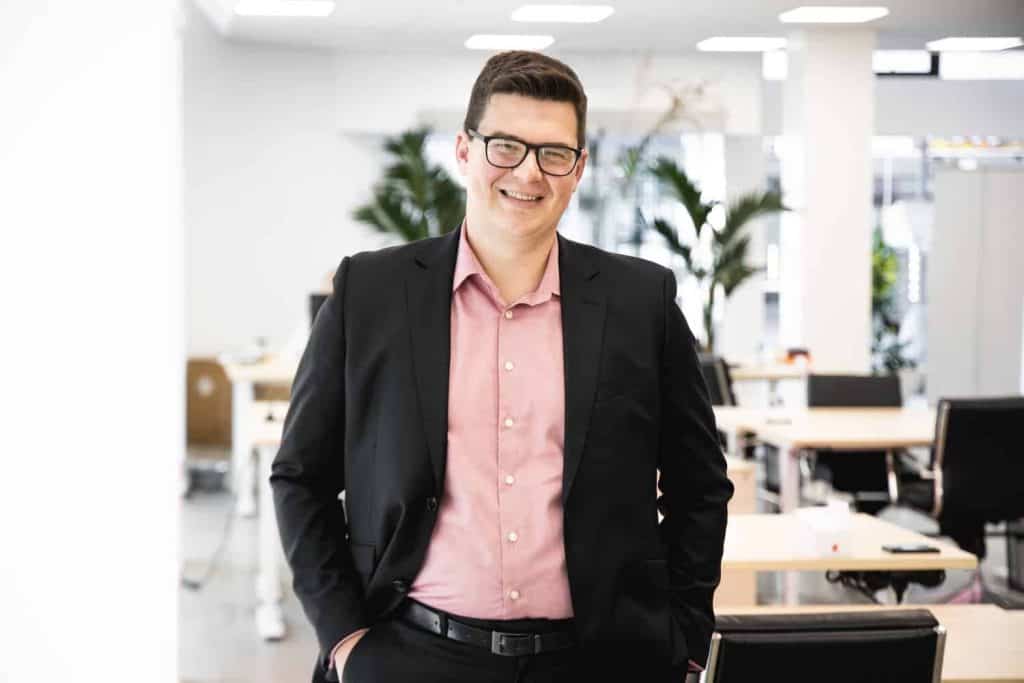
What do you feel it takes to become a successful freelance copywriter in the SaaS niche?
Just a really solid understanding of the business side of things. The most important bit of SaaS is the second S – service. The fact that it’s a subscription business creates a lot of opportunities for copywriters and marketers.
For example, lots of SaaS companies have a free trial. This is different from other products (you can’t really trial shoes or cars for 14 days), and it also creates a bucket of customers who are highly engaged, but need educational copy to convert to paid.
Churn is also a big problem in SaaS – bigger than other products where you buy the product once, then just go off and use it.
So I think that succeeding in SaaS is about understanding these bits of the customer journey, and figuring out where you can add value.
How long have you been a copywriter? Did you start out in SaaS?
Twelve years now. And no, I didn’t start out in SaaS. I started out writing these absolutely ridiculous articles for a company called eHow. They paid $15 per article, and they were based on answering peoples’ Google queries.
This was in 2009, when the Google algorithm was a lot less sophisticated. eHow’s strategy was to pay a gigantic army of freelancers $15/article to absolutely flood the internet with content with titles that looked like they answered popular searches.
At that price point, you can imagine that the content was . . . not good. I had to do each article in 30 minutes or less, from start to finish. And since they were all based on Google queries, a lot of them were hilariously dumb.
“How to stop ice cream from melting” was one; “how to deregulate oil futures” was another.
Anyway, after 18 months or so of that, I got a job at Xero, which was my intro to Saas. I worked there for almost four years.
Was there a reason you decided to focus on SaaS?
I kind of fell into it early in my career, then when I went out on my own, I did the classic freelancer thing of just saying yes to everything that came across my plate.
After a year or so of that, I realised that a lot of freelancers were specialising in SaaS – I figured that with my background, I could add a decent amount of value for SaaS companies.
What was your first client project in this niche?
I think it was a case study for a firm called Tidy International – some project and inventory management software.
You can still see it here: XU Magazine – Issue 25 by XU Magazine – issuu
Do you write for any other niches outside of SaaS?
Yeah, I’m not really that niched if I’m honest. Maybe half of my work in SaaS? Other half is spread all over the place – a decent amount of financial services, then some random rats and mice thrown in.
I expect I’ll be a lot more specialised in a couple of years though. I’m bringing on a lot of overseas SaaS clients at the moment, so expect that momentum to keep moving in the right direction (fingers crossed).
What do you love most about writing for this niche?
It’s really about the way the business is structured for me. I like the way (most) SaaS businesses’ funnels create a really clear delineation between different stages of awareness; makes it much easier to write effective copy.
For example, when I’m writing acquisition-focused social media ads, I know that the audience is probably pretty cold, but problem-aware. So I can structure the ads around that (I halved a company’s cost of acquisition doing this late last year: My small change had a big impact — Sam Grover)
Or, on a home page, you can pretty safely assume that someone has SOME information about your company, and they are looking at different solutions – so you can really focus on the nuts-and-bolts “who is this for, what does it do, why do they work with us?” questions, rather than aspirational stuff.
Then for nurture emails, you can go a step further.
It’s all very neat and tidy compared to other businesses that tend to be a lot messier in this regard.
Do you specialize in any specific type of projects for clients?
I specialise in an area of the funnel – the middle! The people who aren’t completely cold (as I’m not great at the aspirational copy they need to move down the funnel), but haven’t signed on the dotted line yet either.
I’m still working out what this means in practice. I do a decent amount of copywriting work for home pages, which are really the high end of the middle of the funnel.
The stuff I’d like to spend more time doing is in actual middle of the funnel – things like lead nurturing email sequences for people who signed up for a trial, or ongoing “evergreen” content for people who signed up for a lead magnet.
This stuff is really more content strategy than copywriting – figuring out what kind of content people need at this stage in their buyer journey and getting it in front of them. Lots of case studies, white papers and so forth.
Often it’s a matter of auditing what’s already there, then creating new content to fill gaps – then getting it in front of people. There’s copywriting, but it’s not that focused, deep thinking conversion copywriting you’d see on a landing page or something.
How do you know how much to charge for different types of SaaS project?
Lol. I don’t. I’m trying to create more packaged services, because I absolutely hate the scope-proposal-negotiate dance.
But I still do that dance. I found it was quite useful to put a rates page on my website. That qualifies people before I speak to them, and also sets expectations. It also stops me from negotiating against myself when people ask for a ballpark figure.
So I use that page as a starting point, then build out proposal prices from there. It’s very finger in the air stuff. It doesn’t help that I’m not super niched down yet – so I do a bunch of different types of projects, which makes it hard to establish a baseline price for each one. It’s a work in progress.
What’s your advice for people trying to break into this niche – either from another niche, or starting from scratch as a new writer?
I mean I can only speak from my own experience, which is – get a regular job in the niche. You’ll learn a wild amount just thru osmosis.
Not super helpful I know.
But I guess the other thing is to just nail the basics. Pitch some companies on small projects, do what you say you’re gonna do, hit your deadlines, be flexible and reasonable to work with, and you’ll be able to build up from there. Those are the things that clients care about.
I think in general, you are better served by learning about the SaaS industry rather than trying to find specific tips for SaaS writing. I don’t really think there’s much difference between SaaS copywriting and other copywriting; a legal tech SaaS company (for example) is going to have more in common with a legal tech regular software company than a SaaS construction management company.
But if you can learn the basics of the SaaS industry – what sorts of metrics these companies care about, the jargon they use – you’ll be able to pitch yourself to them much more effectively.
What’s your best tip for new writers who are worried they won’t get good SaaS clients due to time zone or currency differences?
I have never found time zones to be a problem. With North America and NZ, it’s pretty easy to find time at the start or end of each of your days to have Zoom calls. Bit more tedious with UK/Middle East – that involves more evening calls.
Same with currency. Just charge in US dollars and if you don’t live in America, ta-dah, you have a free bonus.
You can follow Sam on Linkedin for lots of stuff about copywriting and content strategy – or sign up to his newsletter for a weekly, more in-depth articles.
Alex Napier Holland
I met Alex via the Copywriter Club, and then a couple of years later we met in person at the Running Remote conference in Bali. Alex’s business has gone from strength to strength since I’ve known him, which has been awesome to watch.
What do you think it takes to grow a successful B2B SaaS copywriting business?
I’m a fan of the T-shaped skills model for marketing. You need one standout skill – and a selection of supporting skills so that you can collaborate and contextualise effectively.
Sure, sharp copy chops are essential. But you need to develop a decent grasp of software sales processes, UX/design principles, general marketing knowledge, consulting skills – and a real passion for software and technology.
Most people don’t start with all these skills – and there are tonnes of great free (and paid) online resources.
You’ll work closely with designers and it’s important that you deliver them web-formatted copy that’s been edited with design in mind. You can’t just dump words and walk away.
You also need a thick skin. My clients are really great people – but you can’t avoid the fact that there’s a tonne of pressure on you to deliver results.
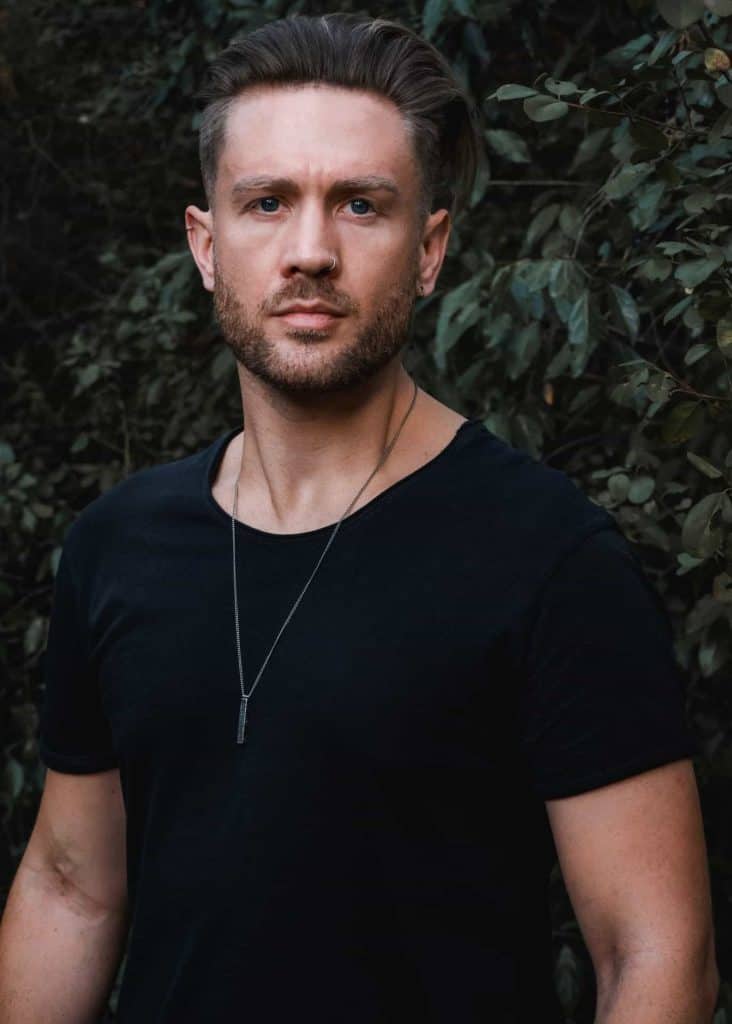
How long have you been a copywriter? Did you start in SaaS?
I trained as a journalist in London, then I spent six years in international sales for software and advertising brands. I switched to writing four years ago.
I started at the top of the funnel – with SaaS blogging – and gradually moved down the funnel. I recommend working down the funnel to anyone who wants to become a sales copywriter.
I’ve been focused exclusively on SaaS conversion copy for around two years.
What made you decide to become a SaaS copywriter?
I burnt out in sales and wanted to escape corporate life. I was still passionate about technology – but sales never got me close enough to the product or brand identity. And I wanted more travel.
I felt ‘stuck’, so I sold most of my material possessions and BMW – and flew to Australia on a one-way ticket. I initially interviewed for more sales jobs, but I realised that I wanted my own online business – not another suited, fixed-location office job, even if it was in Sydney.
So, I got a job on a building site – as I knew that pressure would force me to adapt and find a new plan. And it worked brilliantl. I knew that I loved writing, technology, and design and figured, ‘Hey, someone has to write those words on technology brand websites. I wonder if there’s any money in it?’.
I didn’t know what a ‘copywriter’ was – and I had no idea about the earning potential. Once I found out, it clicked – and I worked like crazy. For six months, I’d work on a building site, go home and surf or freedive – then learn about marketing and copywriting online.
I was so poor that my monitor riser was a cardboard box – and my shoes had holes in. Sydney isn’t known for being an affordable place to start at the bottom of a new ladder. My friends back home with ‘sensible’ jobs thought that I’d lost the plot! But it was a magical and exciting time – I could feel that my life was changing.
As a backpacker, I had to change jobs every six months in Australia. Just several weeks before that cutoff, I pitched a couple of Sydney’s top CRO and design agencies, won gigs – and was officially a content writer for the second half of my year in Australia.
After that I moved to Bali, founded my own business, fell into the infamous hacker/maker community – and the rest is history. But it all started with a genuine, legitimate passion for travel, technology, and content creation.
What was your first client project in this niche?
I won various tech blogging projects, and then got a lead for my first ongoing technology blogging project – BitBar – who were an awesome client. That covered my basic living bills in Bali. I’m eternally grateful to them.
Do you work in any other niches to give your brain a break from constant software jargon?
I write for technology and design companies. I’ve just finished a landing page for a Tesla competitor that I’m super-excited about.
Ultimately, product design is where my passion truly lies – and that’s my goal.
What do you love most about writing for SaaS?
I sleep well. I briefly dipped my toes into eCommerce copywriting and couldn’t bring myself to pretend that mass-produced, plastic trash was in any way ‘innovative’ or ‘groundbreaking’.
I won’t even mention the terrible things that many direct response copywriters do.
Some SaaS products will change the world. Some are a little dry and technical – but helpful for a certain audience. Very few have ever made me question my moral compass.
Do you specialize in any specific type of writing inside this niche? (e.g. blogs, emails, ads etc) And why did you choose these?
I almost exclusively write landing pages and homepages – and it feels good to say that.
I enjoy the challenge, pressure, and intense focus that’s required to research, plan, and write a relatively short, yet mission-critical page.
I love UX and design – and it’s an honour to see my words framed by a talented designer.
How much can a B2B SaaS copywriter expect to earn as a beginner, and when they’re further ahead?
$100-300k a year is pretty realistic – and I’m pretty sure some are closer to half a mil. And that’s just for SaaS copywriting.
I’m surrounded by SaaS founders and agency owners, who think exclusively in terms of recurring revenue. I already dabble with startups/agencies where I get a cut of revenue – and have started to help SaaS apps to build their use base in exchange for equity.
Some of my friends have made high 6 and even 7 figures from scalable products like online courses and eBooks – so that’s on my agenda too.
SaaS copywriting is a valuable skill – and it can unlock a lot of value. I think you have to start at the top of the funnel – with SaaS content writing.
Let’s be clear – ‘content writing’ is generating interest/engagement with blog articles and eBooks. Whereas ‘copywriting’ is exclusively writing to win a sale/signup.
And I don’t see any way that you can legitimately jump straight into conversion copywriting, with no previous track record writing for technology brands, or UX/design skills.
So, learn to generate interest, traffic and engagement; have a go building your own website – then shift closer to getting people to whip their credit card out.
A newbie SaaS content writer should start with at least $100-200 per article – up to $300-400 – and one article a day is realistic. Any ‘marketer’ that’s trying to buy $20 SaaS articles is beyond clueless – so avoid them.
Next, I’d look at eBooks and 10X content articles – maybe a week of solid work for $2-3k.
Once you get into copywriting your projects could be anywhere from $5k to $30-50k. Most of my work’s in the $5-15k per project range – and those rates will increase as I continue to invest in my strategy skills and processes.
I’m likely to bump my minimum project rate from $5k up to $10k this year.
What’s your advice for people trying to break into this niche – either from another niche, or starting from scratch as a new writer?
Ask yourself if you’re genuinely passionate about technology and software. If you’re not, then it’ll be hard to compete against people who really care.
Study content funnels and work your way down from the top – so you understand how to develop and deliver the entire structure.
Develop baseline skills in both SEO (on-page SEO as a minimum) and UX/design. You don’t need to be an expert at either – but you definitely need a grounding in each.
Buy and read ‘Finding the Right Message’ by Jennifer Havice – I instantly boosted my income once I read this book and doubled-down on my customer research as a separate, billable item.
Remember, you’re not a ‘writer’. You’re someone who helps technology brands to improve their positioning and offer. And you’re a star player in creative teams that will be assembled to build exciting digital experiences that sell and promote new ideas – some of which could change the world.
If that doesn’t sound more exciting to you than ‘writing’, then go and pen a book instead. But my top tip is ALWAYS put your health and fitness first!

What are your favourite resources online (free or paid) that you would recommend for new writers to learn about becoming a SaaS copywriter?
Honestly, that’s my least favourite question – as I’m not really an ‘online course’ person. I prefer to pitch for stuff that’s outside my comfort zone and then frantically research with Google to figure out how to do it justice. And that’s always worked for me.
Youtube’s got a tonne of great videos and interviews with superstar marketers.
I’d recommend that you find and follow some of the top SaaS copywriters out there eg. Joel Klettke, Josh Garofalo, and – obviously! – Rachael Pilcher, as they pump out a lot of excellent, free advice about copywriting and freelancing that’s super-actionable.
But I think the reason that I get generous advice and leads from other people is that I do my best to take action – and do them justice.
Now, I’ve started giving advice – and there’s nothing that turns me off helping someone quicker than getting excuses, or requests for an easier path. The internet is full of, ‘How can I get to where you are, without doing the things you did?’. Not a great way to make friends.
You’re nomadic and travel a lot – why is this the perfect freelance niche for you?
Remote work and SaaS go hand-in-hand – and the technology sector has been ahead of the curve on both remote work and quality of life for years.
I’ve met some ridiculously smart, mischievous, and successful SaaS founders and marketers through the digital nomad scene – people who once inspired me, that are now my friends.
They’ve boosted my career and lifestyle – with countless insights, tips, and hacks for marketing, remote work, peak performance, residency, and tax structures. And the young ones keep me on my toes with exciting new technologies that I can barely keep up with!
Ironically, quitting corporate tech ended up significantly boosting my technology career and earning potential (after a temporary dip). When COVID hit I was already a seasoned remote worker – and my business grew rapidly throughout lockdown, while everyone else was struggling to adapt.
My clients may be spread across San Francisco, London, Toronto, Sydney, and Singapore – but there’s a common stack for remote (and increasingly asynchronous) work with Google Docs, WordPress/WebFlow, Slack, and Figma. And all of those tools have basic free versions.
I read about other sectors and feel a mixture of guilt and relief that I’m in such a fast-growing industry – where you’re expected to be floating around the world and enjoying your life.
I can happily tell my clients that I’m in Bali and I’ve just come back from a surf. The best thing of all is the feeling that I’m being paid to be me.
You can follow Alex on LinkedIn and Twitter, or visit his website
Diane Wiredu
I met Diane through the 10X Freelancer Mastermind run by Joanna Wiebe – and it’s been super exciting seeing her confidence and business grow over the last couple of years!
I asked Diane what she feels is important if you want to succeed as a SaaS copywriter
Curiosity and a desire to learn. The tech industry moves fast. You need to stay up to date. And it helps if you want to.
How long have you been a copywriter? Did you start out in SaaS?
I started out writing for luxury travel, fashion, and beauty brands, and ecommerce. Worlds apart!

What was your first client project in the SaaS niche?
I jumped headfirst into a monster of a project: a B2B enterprise funnel.
I led research and discovery, developed new strategic messaging for the company, then created an ebook, landing page variations and post-conversion emails.
Do you work in any other niches outside of SaaS for some variety?
I work with clients across a range of B2B professional and digital services. From marketing and CRO agencies to e-learning and dev shops.
What do you love most about writing for SaaS?
I love that I get to work with people who are so much smarter than me. SaaS founders are a passionate and inspiring bunch of people — and wicked smart. They get my expertise on messaging, but I also learn a lot from them. It’s a win win.
Also, I work with companies whose product I truly believe in. So I love helping them make an impact on people’s lives.
What’s the biggest challenge writing for SaaS brands?
Keeping up! SaaS startups and scale-ups love to move fast. (Well, they have to if they want to survive.)
Plans change quickly, products get scrapped, teams restructure. There’s a ‘ship fast and break things’ mentality that you need to be ready for.
Do you specialize in any specific type of project writing inside this niche?
I started out working on website and landing page copy. But my core focus is now brand messaging strategy.
I help B2B SaaS companies get clarity on their positioning, differentiation, voice, and core messages. The foundational stuff of strong and effective copy. They walk away with a Messaging Playbook they can use and refer to as they scale.
How much can B2B SaaS copywriters expect to earn?
How long is a piece of string? Seriously though, the sky’s the limit. B2B SaaS companies understand the value of copy, which puts you in a great position to charge highly for your services.
How much that is often comes down to how you position yourself and the results you deliver.
Are you someone who executes or are you a strategic asset? As a solo copywriter, earning $80k+/year is well within reach if you build your authority in the space.
What are your favourite resources online (free or paid) that you would recommend for new writers who are keen to establish themselves in the SaaS niche?
I’d split this into two parts. First, focus on becoming a conversion copywriter; understanding buyer psychology, consumer behaviour, persuasion and all that juicy stuff. Second, stay up to date with the SaaS industry.
Some of my favourite publications are Copyhackers, CXL, the Hustle Daily, and Reforge. All of them offer free and paid resources. Copyhackers is my go-to for conversion copywriting knowledge.
I also listen to a bunch of SaaS podcasts. You learn a lot about the mindset of SaaS leaders on podcasts, their challenges, tactics, wins and fails. A few of my faves are How to Win by Peep Laja, The SaaS Revolution by Alex Theuma, and SaaS Growth Stacking by Dan Martell.
You can keep in touch with Diane on LinkedIn by sending her a message mentioning this article. You can also where you’ll learn more about brand messaging and conversion copywriting.
Recommended Reading For B2B SaaS Copywriters
Becoming a freelance B2B SaaS copywriter isn’t only about writing. You’ll need to learn the art of negotiating project scope and pricing with clients on calls, how to run customer research, how to use customer research to direct the messaging in your copy, and how to write copy that uses the mechanisms of psychology and persuasion to make sales for your clients.
These are books I constantly recommend to other copywriters who are looking to upskill and grow their businesses.
Conclusion – How To Become A B2B SaaS Copywriter
I’m eternally grateful to all the copywriters that took the time to share their stories, struggles and successes for this article on how to become a B2B SaaS copywriter. As you can see – the path to success for everyone in the B2B SaaS niche is wildly different.
There’s no right or wrong way to start out as a SaaS copywriter, you just need to focus on the foundations of the freelancing business that are the same for every niche. And you need to start with realistic expectations about what you can do – and what you can charge for it.
Grow your network, create genuine relationships with other writers and business owners, and focus on understanding the industry as a whole so you can better serve your clients and understand the pain points of their customers.
This will create natural growth for both your copy skills and business skills, enable you to specialize in what you enjoy doing the most, and charge for what your time and knowledge is worth.
If you’ve read any of the above interviews and want to reach out to any of these copywriters directly with questions – don’t hestitate to send them a message and tell them you read this article. They’re all super smart and awesome humans 🙂
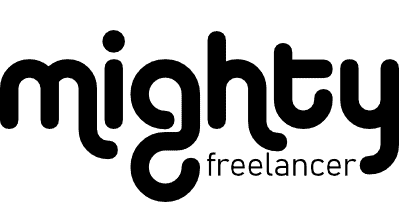
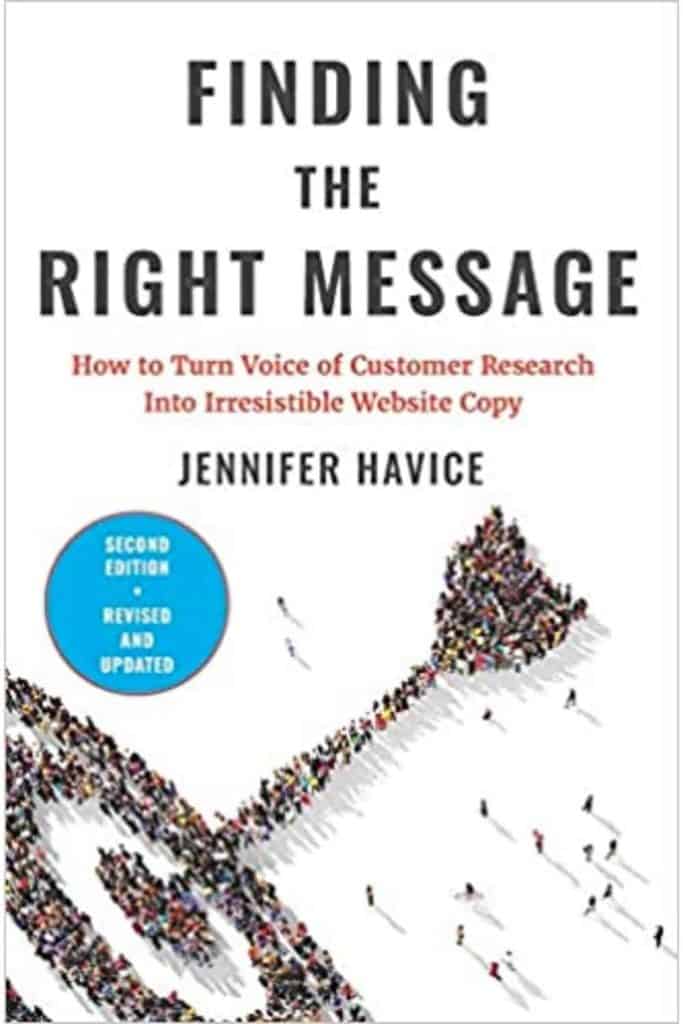


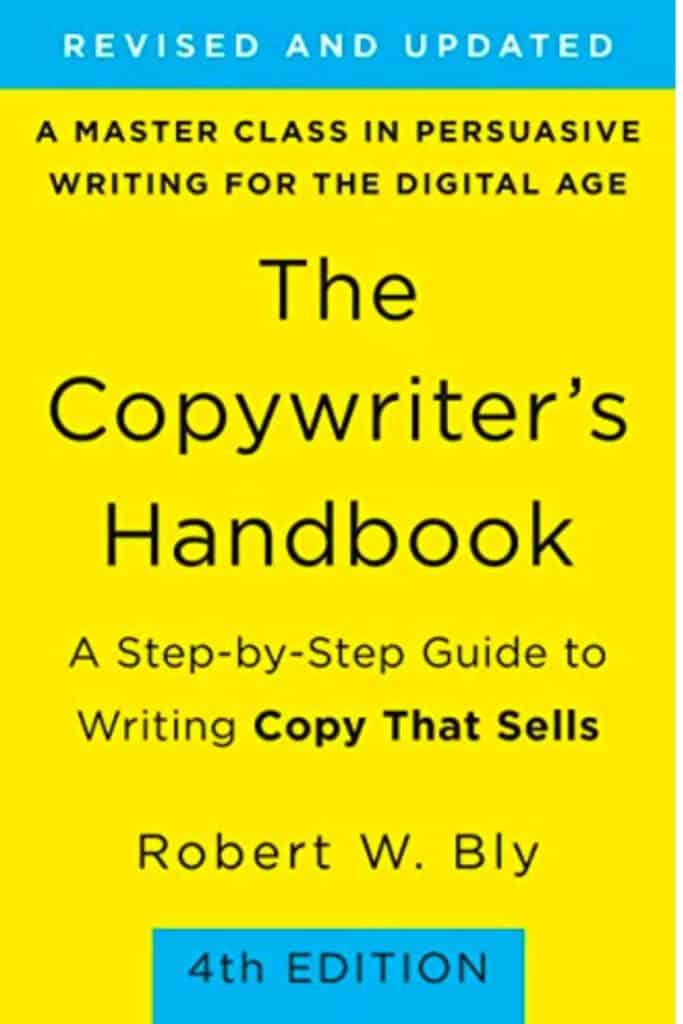
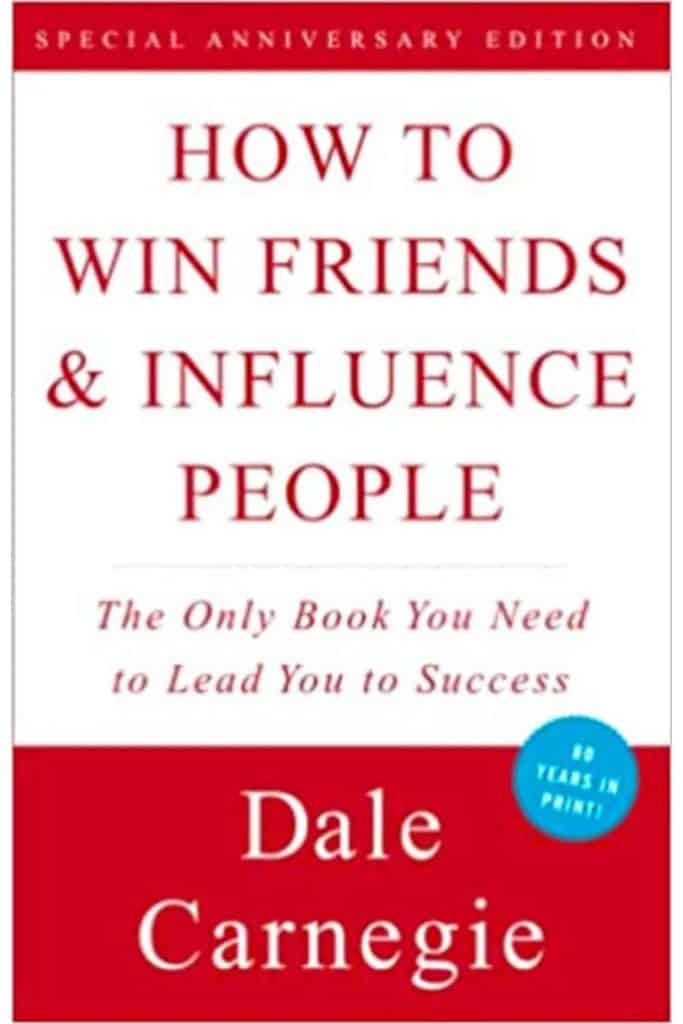


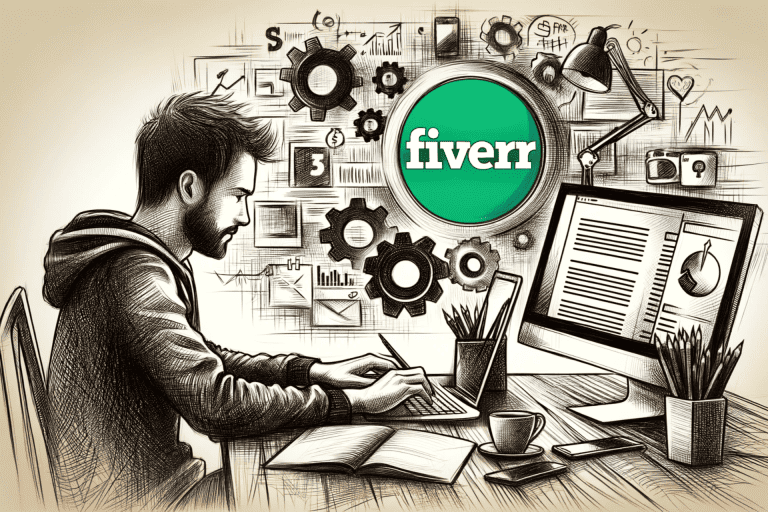


![Invoice Home Review – Is It Worth It For Freelance Writers [2023]](https://mightyfreelancer.com/wp-content/uploads/2023/06/invoice-home-review-768x512.jpg)

Thank you very much , it’s highly valuable for me I’m currently 3rd year engineering student struggling to be a b2b saas copywirter. It will help me.
So glad to hear you found it helpful. Follow all of these copywriters I interviewed on LinkedIn – they have some awesome advice. You got this!
You did a great job interviewing these people!
My path is similar to Annie’s, I guess. I learned about copywriting for SaaS accidentally, at contenteam, since it was the company’s main focus. And I had to learn how to copywrite right away. Luckily, back in the day, I read Maugham’s memoirs. He claimed that clarity and accuracy in delivering thoughts are the basics of good writing. Turned out, that those things are vital in copywriting too, and in SaaS it’s a must. Inspiration and help come from anywhere, and today it’s your interview😊
Thanks!
Hey Sam – glad you enjoyed the read (and impressed you made it through that long article!). I totally agree – clarity in delivering thoughts is essential for copywriting, especially as you don’t have the luxury of writing at length like you would in a blog – everything has to be crystal clear, but in a very small amount of words!
I’m so thrilled I came across this post. It’s really an invaluable gem, especially for me trying to breaking into SaaS copywriting.
Until this moment, I was clueless about where to start, but this post has helped clear up a few things.
Thank you Rachael. I’ll definitely connect with them all, including you.
So glad you found it helpful – and best of luck with your copywriting journey!
As a non-experienced, aspiring SaaS copywriter this information was so helpful. I gained a great deal of insight from each interview. Thank you!
Hi Erika – thanks for reading, and glad you enjoyed it! Don’t forget to connect with everyone on LinkedIn too, they’re always posting very helpful stuff for other SaaS copywriters 🙂